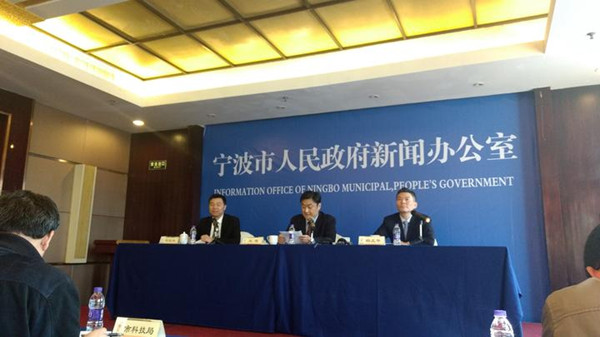Ningbo to build national innovation demonstration zone

The Ningbo government announces its 46 new measures on building a national innovation demonstration zone at a news release conference on Nov 29. [Photo/zj.zjol.com]
Ningbo government rolled out 46 new measures on Nov 29 for the establishment of a national innovation demonstration zone in the city, local media reported.
The move came after the approval from the State Council in February for the city to establish such a zone, making it the second city in Zhejiang province to be allowed to do so, after the one previously established in Hangzhou, capital of the province.
The measures outline the specific objectives and concrete ways in setting up the zone within the next five years.
Ningbo will strive to build itself into one of the nation's innovation and entrepreneurship hubs for the private economy, new materials and smart manufacturing through the construction of the national innovation demonstration zone.
It aims to realize an increase in R&D output to 3.4 percent of its regional GDP by 2022, with the added value of high-tech industries reaching 260 billion yuan ($37.45 billion) and the number of valid patents exceeding 50,000.
Specifically, the city will leverage the key role of its National High-Tech Zone in integrating the real economy with internet technologies, improve the resource layout of its Yongjiang Scientific Innovation Corridor, and build a new zone around the Hangzhou Bay for the smart economy, artificial intelligence and new energy vehicles.
Construction of the Yongjiang Lab has been made a top priority, and the building of other major labs, innovation centers, and research infrastructure will be supported, with subsidies of up to 30 million yuan.
In addition, the city will also establish a new appraisal mechanism based on innovation numbers and qualities for company evaluation, to unleash the vigor of its private economy, innovation and entrepreneurship, with subsidies of up to 2 million yuan for companies after they have conducted R&D.



 Print
Print Mail
Mail
